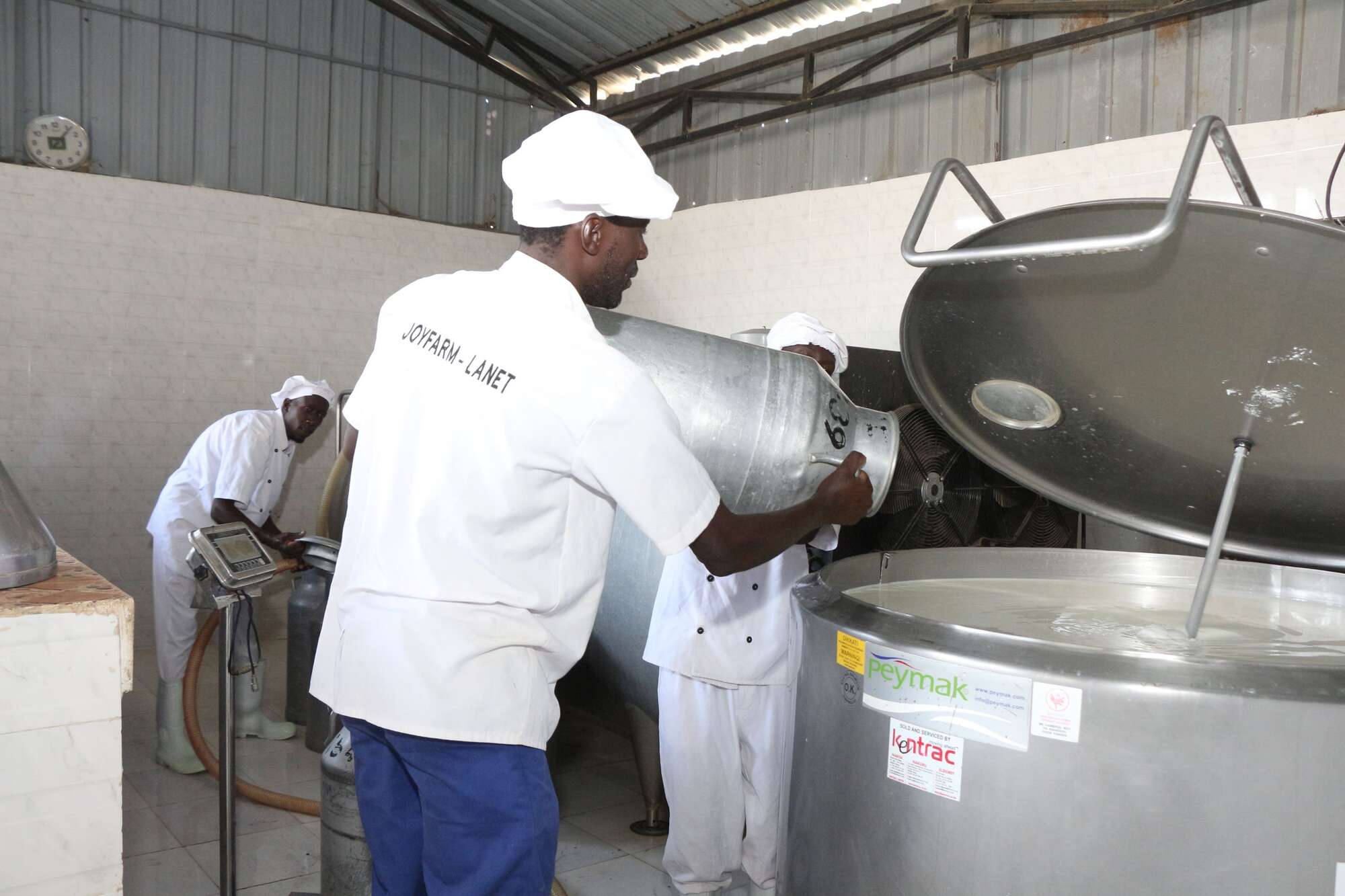
Kenya provides access to Ugandan powdered milk
Nairobi authorities have ordered additional milk powder providers from Uganda in response to reports indicating a predicted decline in milk production in the upcoming months.
The EastAfrican has learned that as the dry months of July–August and December–February draw near, the Kenya Dairy Authority has created a window for increased imports of milk powder from Uganda. Kenya typically experiences a shortage of liquid milk production during these months, which drives up prices.
According to Uganda’s Dairy Development Authority executive director Akankiza Mpiira, “Kenya is to increase the number of milk importation permits to more milk powder from Uganda which they have been restricting to be landed on their market.” Mpiira spoke with The EastAfrican.
However, Brookside Uganda is unlikely to profit from this opportunity because the manufacturer’s dairy products are still prohibited in Kenya by the authorities. Since March 2023, the company owned by Kenya’s former first family has sought for 100 permits; nevertheless, it has not been granted permission to export to Kenya.
As a result, Pearl Diaries and Amos Diaries are left to capitalize on Kenya’s milk powder market, but they are also shipping less to Kenya, which keeps Uganda’s milk powder out of Kenya and prevents it from creating a market for liquid milk, particularly in periods of excess supply.
According to participants in the dairy business, a market for ten litres of liquid milk is generated for every kilogram of milk powder that is kept out.
Kenya accepts exports of liquid milk, however limits apply to milk powder. This is because the market for 10 liters of liquid milk is protected, and each kilogram of powdered milk was halted, according to the DDA.
Kenya’s export market is unpredictable, but the country’s demand for Ugandan milk is still robust. DR Congo, Rwanda, Burundi, South Sudan, Tanzania, and Somalia closely trail in that order. Uganda exports 86.6% of its total milk production to the EAC market.
Uganda’s milk powder producers are fortunate that Kenya has changed its mind. In an attempt to sell to Algeria, they increased production, but no powder has left the powder milk plants in Kampala and Mbarara for Algeria a year after the market was secured.
Discouraged by the low rates Algerian purchasers are paying, Ugandan powder milk producers have decided to wait and observe the Algerian market.
According to a dairy industry analyst, “the price of powder milk is too low for manufacturers to recover the production and delivery costs,” because milk transportation has become more expensive.
Shippers have been compelled to reroute vessels, leaving the Mombasa port to off the coast of South Africa in order to avoid taking a shorter path around the coast of Somalia to the Gulf, which reduces profit margins for milk processors, due to the Houthi rebels’ ongoing attacks on commercial ships in the Red Sea and the Gulf of Aden.
The least expensive method of shipping milk from Kampala, according to information from maritime stakeholders, is to load it onto a truck, drive it to Mombasa port, transfer it to a vessel, and then transport it to the port of Algiers.
The projected total transit time for the route is approximately 30 days, which includes the loading and unloading processes at both the origin and the destination, as well as terminal handling at the $7,003 freight rate at the transit terminal.
Due to poor price offers for their goods and high freight expenses brought on by Houthi rebel attacks on ships in the Red Sea and Gulf of Aden in the Middle East, Ugandan manufacturers anticipate a hard landing in the Algerian milk market.
The typical ex-factory price of milk powder in Uganda is Ush18,500 ($4.8) per kg, so in order for the processors to turn a profit in Algeria, the price of the product must be more than doubled.
“The processors anticipate lower profit margins. Mpiira told The EastAfrican, “That is the reason they are delaying shipping the milk to Algeria.”
After Uganda’s production of liquid milk exceeded 3.8 million metric tons in the year ending December 31, 2023, the country’s milk sector placed its bets on the $500 million milk export market in Algeria.
According to trading data from DDA, milk powder is currently the most exported product, accounting for about 54.2% of total exports, followed by UHT at 33.1%, despite the difficulties associated with entering the market.
Bright Rwamirama, Uganda’s state minister for animal industry, claims that the dairy sector supports millions of people’s lives, increases food security, and improves nutrition while making a major economic contribution to the country.
The sector’s share of the nation’s agricultural GDP is 6.5%. The large-scale dairy processing sector has seen a consistent influx of foreign direct investment due in part to the current favorable investment climate.
All Categories
Recent Posts
Tags
+13162306000
zoneyetu@yahoo.com



